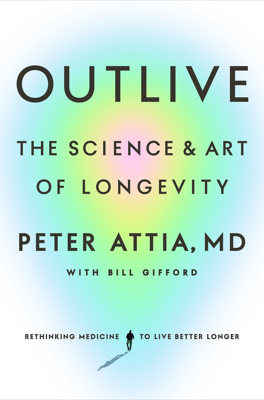The Ticker: Confronting—and Preventing—Heart Disease, the Deadliest Killer on the Planet
Personal Insights and the Predominance of Heart Disease
Peter Attia reflects on his and his family's extensive history with heart disease. Despite maintaining healthy habits, he maintains a high risk due to familial patterns. His awakening to the seriousness of his own cardiovascular health came after a CT scan revealed early signs of atherosclerosis, despite him being in robust health at the time.
Understanding Atherosclerotic Cardiovascular Disease (ASCVD)
Atherosclerotic disease, encompassing heart disease and stroke, stands as the leading cause of death globally. Despite advancements in acute cardiac care, the rates of sudden death due to heart attacks remain significantly high. Attia argues for an increased focus on the prevention of heart disease far before symptoms appear, stressing the slow and insidious development of ASCVD. The disease is often understood too late, when a pathologist examines a deceased patient's arteries.
Importance and Misconceptions of Cholesterol and Lipoproteins
Contrary to common belief, dietary cholesterol has minimal impact on blood cholesterol levels. Heart disease is more accurately linked with how cholesterol is transported in the blood via lipoproteins. LDL (low-density lipoprotein) and HDL (high-density lipoprotein) are misunderstood; their labels as "bad" and "good" cholesterol oversimplify their roles: - LDL particles contribute to plaque buildup but their impact depends on quantity and oxidation status. - HDL helps remove cholesterol from arteries but increasing HDL levels alone does not decrease heart risk.
Key Markers and Measures in Diagnosing and Managing Heart Risk
A more precise measure of cardiovascular health risk lies in calculating the amount of apoB (apolipoprotein B) in the blood, which is more indicative of heart disease risk than just LDL-C levels. A calcium score from heart scans is useful but limited; only reflecting significantly progressed disease stages. Instead, understanding the full lipid profile, including novel markers like Lp(a) - an inherited risk factor that significantly accelerates heart disease, provides a clearer picture.
Comprehensive Approach to Managing Heart Disease Risk
Attia argues for a proactive and comprehensive approach in managing cardiovascular risk: - Target the reduction of apoB particles and manage lipid profiles rigorously. - Incorporate lifestyle changes, diet modifications, and when necessary, medications like statins, ezetimibe, and PCSK9 inhibitors that work in different ways to reduce cholesterol levels and apoB particles. - Recognize and address the risk from a long-term perspective, considering preventive measures early in life to drastically reduce the lifetime risk of heart disease.
Personal Health Strategy and Long-term Outcomes
Attia shares his personal journey and how an aggressive and tailored health strategy appears to have halted the progression of his heart disease. Continuous monitoring and adaptation of his health plans ensure proactive management of potential risks, aligning with his advocacy for a preventive approach to Medicine "3.0".
Through this narrative, Attia not only shares his own experiences but also underscores the importance of evolving our understanding and management of cardiovascular health, focusing on early intervention, and the accurate assessment of complex lipid profiles to fend off the world's deadliest killer, heart disease.
